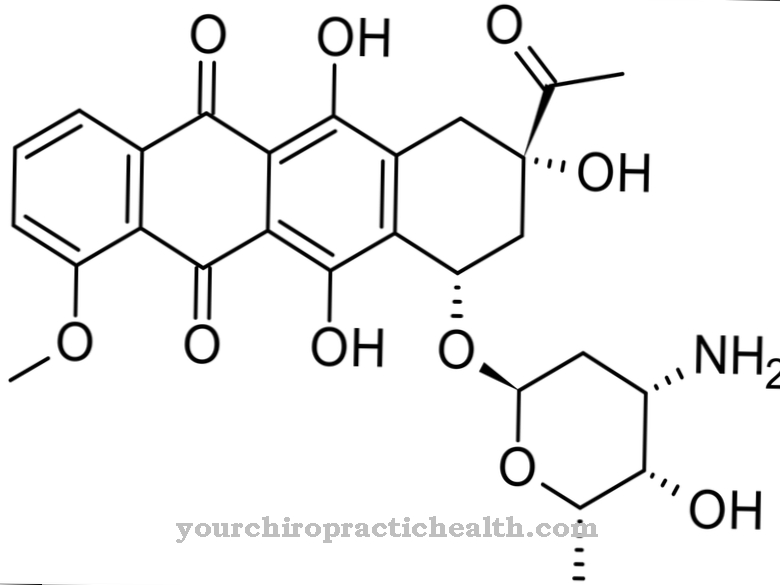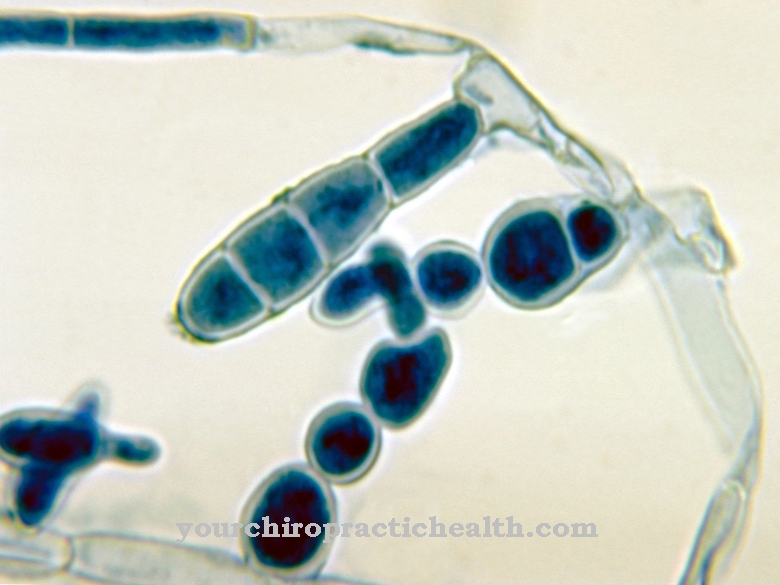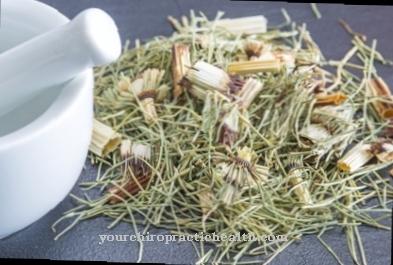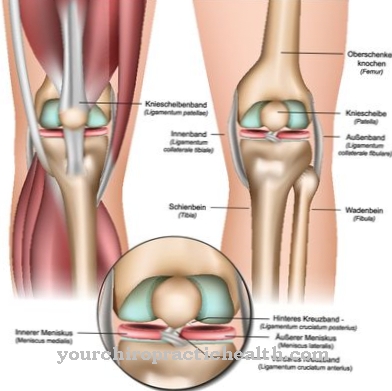Mesna is an abbreviation for Sodium 2-mercaptoethanesulfonate. This is an active ingredient that can be used to support chemotherapy. Mesna is designed to support the organism by rendering toxic metabolic products harmless and thereby reducing the risk that the patient will develop a serious complication as a result of chemotherapy.
What is mesna?

With Mesna (more rarely also in the spelling MESNA) is a short form for the pharmacologically active substance sodium 2-mercaptoethanesulfonate with the empirical formula C2H5NaO3S2. In its pure form it is irritating and therefore requires careful handling.
Mesna belongs to the class of antidotes and cough removers, which liquefy the bronchial mucus (mucolytics). In 2008 the approval for Mesna as a mucolytic expired; before that it was used for bronchial obstruction, bronchiectasis, cystic fibrosis and other diseases.
Mesna is formed from the combination of 2-bromoethanesulfonic acid and thiourea, which is formed from urea when a sulfur atom displaces the oxygen atom in urea.
Pharmacological effect
The mesna molecule has a sulfhydryl group at one end through which it can form a bond with the toxic substance acrolein. The EU hazardous substance label classifies acrolein u. a. as very toxic one. It occurs when cyclophosphamide or another oxazaphosphorine is needed to fight cancer cells.
Acrolein is therefore a major problem for chemotherapy, because without an antidote such as Mesna, the dose for treatment with cyclophosphamide is not solely based on necessity. Instead, doctors must limit the dose of the chemotherapy drug to keep the toxic effects of acrolein under control.
Mesna shifts the relationship in favor of the patient. Without the medicine, acrolein could cause an infection of the bladder with bleeding called hemorrhagic cystitis. In addition to a significant amount of blood in the urine, hemorrhagic cystitis can manifest itself in frequent, painful or burning urination and bladder cramps. You may also experience abdominal pain, fever, or urge incontinence.
If left untreated, cystitis can develop into pelvic inflammation, which often manifests itself in symptoms such as tenderness in the kidney area, nausea, dizziness, fever, or headache. In the worst case, the infection spreads further and ends in a specific form of blood poisoning, urosepsis, in which the blood vessels are damaged and a life-threatening condition can occur. The death rate for urosepsis is between 13 and 43%, depending on the form.
Medical application & use
Mesna can be used with certain types of chemotherapy to treat cancer. The substance does not act directly on the neoplasms or metastases, but supports the therapy by rendering toxic metabolic products harmless. These harmful substances arise as a result of the actual chemotherapy.
However, doctors cannot use Mesna all the time to reduce the general side effects of various chemotherapy treatments. The active ingredient only neutralizes a specific toxic metabolic product with which it can form a chemical bond, namely acrolein.
Mesna is available as an antidote under the trade names Mistabronco® and Uromitexan®. Patients usually receive the latter as an infusion during and after the actual chemotherapy.
In order for the acrolein to leave the body, patients should drink plenty of fluids. It may also be necessary to monitor excretions to ensure that no body functions are impaired and that the fluid, in combination with mesna, is washing out toxins as intended. As a rule, the body excretes the drug very quickly.
Risks & side effects
In rare cases, side effects of Mesna include symptoms such as skin reactions, water retention (edema), symptoms of the mucous membrane, drop in blood pressure and a racing heart (tachycardia).
High doses can also cause headaches, exhaustion and weakness, nausea, vomiting and body aches. It is unclear, however, whether some of the symptoms are due to chemotherapy and not to Mesna.
Some people are hypersensitive to mesna and develop various skin reactions that can also affect the mucous membranes. Circulatory problems can also manifest themselves. Mesna is therefore contraindicated in hypersensitivity, as long as the potential benefit does not outweigh the potential. However, this decision depends on the individual case.

















.jpg)







.jpg)


